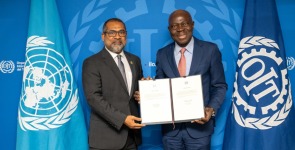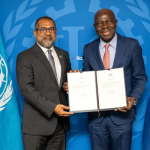
On the occasion of World Population Day, President Dr Mohamed Muizzu delivered a clear message: the Maldives must invest more in its young people if it hopes to remain resilient in the face of shifting demographics.
In a statement marking the day, the President underscored that the country is steadily transitioning into an ageing society, with forecasts suggesting that one-fifth of the Maldivian population will be over the age of 65 by 2062. This looming shift, he argued, requires urgent and sustained policy focus on the younger generation, who will shoulder the responsibilities of an older population in decades to come.
“We must prepare our youth to navigate the challenges of an ageing society,” he said, reiterating his administration’s commitment to making structural changes that benefit younger Maldivians. These include expanding access to education, providing flexible work arrangements, ensuring affordable housing, and investing in childcare and healthcare services.
The President also highlighted the need to equip young people with the tools to make informed life choices. Improved reproductive health services and counselling, he stated, must be part of a broader approach to healthcare that is sensitive to the realities of today’s youth.
His comments are aligned with the findings of the 2025 State of World Population report published by the United Nations Population Fund (UNFPA), which warns of the dangers of a demographic divide. The report notes that countries with youthful populations face both opportunity and risk: if investments in education, employment, and reproductive rights are prioritised, they may reap a demographic dividend. If not, the lack of preparation could deepen inequality and strain public services.
In the case of the Maldives, where youth unemployment and housing shortages have persisted for years, the report’s recommendations carry particular weight. It stresses the importance of data-driven policymaking that reflects the lived experiences of communities, as well as inclusive, long-term planning that transcends political cycles.
President Muizzu called for a national population policy that reflects these realities, aiming to align the country’s development path with its demographic future. “Long-term planning is essential,” he said, noting that policies must be rooted in national data and anticipate the country’s evolving age structure.
World Population Day, observed annually on 11 July, was established by the United Nations to draw global attention to the relationship between population dynamics and sustainable development. This year’s theme focuses on using population data to shape policy and empower people.
For the Maldives, the challenge is both urgent and clear. With one of the youngest populations in South Asia today, the country has a window of opportunity. But that window will narrow. As the President’s remarks suggest, failing to invest in youth now may leave tomorrow’s ageing society with far fewer options.












